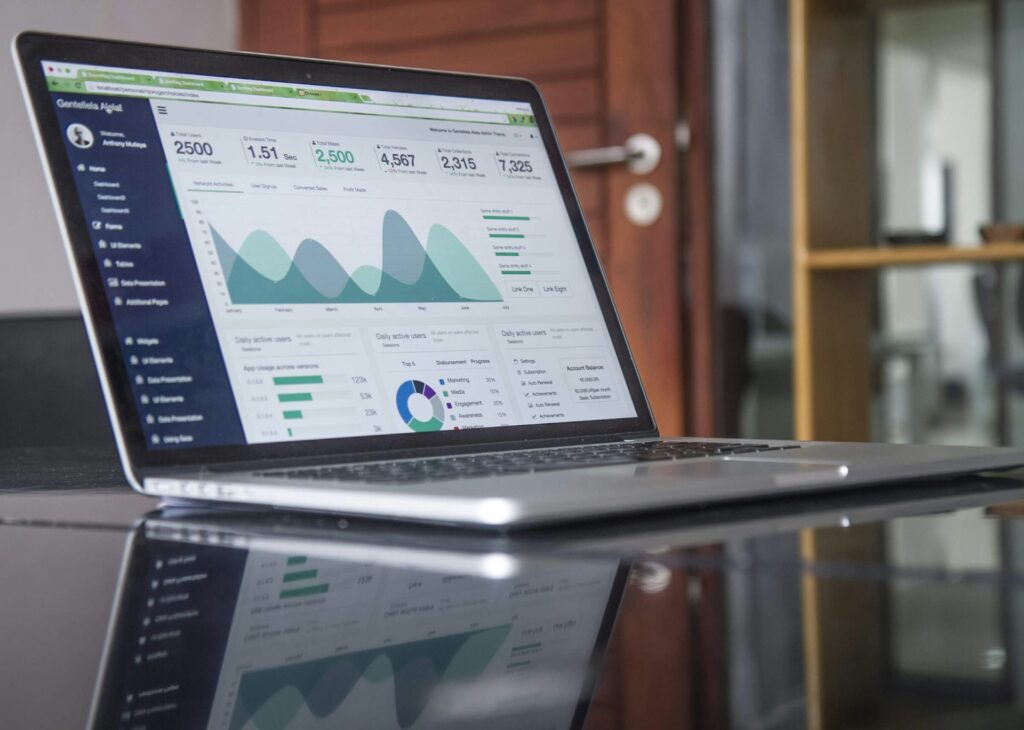In today’s digital age, Data Analytics stands as a cornerstone for informed decision-making across various industries. Harnessing the power of data has become imperative for businesses striving to stay competitive in dynamic markets.
Understanding Data Analytics
Data Analytics encompasses the process of analyzing, interpreting, and deriving actionable insights from vast sets of data. It involves techniques ranging from statistical analysis to machine learning algorithms, aiming to uncover patterns, trends, and correlations within data.
Importance in Business
Businesses leverage Data Analytic to gain a deeper understanding of their operations, customers, and market trends. By harnessing data-driven insights, organizations can optimize processes, enhance efficiency, and drive innovation.
Types of Data Analytics
Data Analytic is broadly categorized into three main types:
Descriptive Analytic: Provides insights into past data to understand what happened.
Predictive Analytic: Forecasts future trends and outcomes based on historical data and statistical models.
Prescriptive Analytics: Suggests actions to optimize outcomes based on predictive analysis and decision science.
Tools and Technologies
A myriad of tools and technologies support Data Analytic processes, including industry leaders like Python, R, Tableau, and Power BI. These platforms offer diverse functionalities for data collection, cleansing, analysis, and visualization.
Challenges in Data Analytics
Despite its transformative potential, Data Analytic encounters several challenges, including data quality issues, talent shortage, and regulatory compliance. Overcoming these hurdles requires a holistic approach involving technology, people, and processes.
Data Analytics in Marketing
In the realm of marketing, Data Analytic revolutionizes strategies by enabling targeted advertising, personalized campaigns, and customer segmentation. Marketers can optimize their efforts based on consumer behavior and preferences, driving better engagement and ROI.
Data Analytics in Healthcare
Data Analytic plays a pivotal role in healthcare, facilitating clinical decision support, disease prediction, and patient monitoring. By analyzing vast healthcare datasets, practitioners can enhance diagnostics, treatment efficacy, and population health management.
Data Analytics in Finance
In finance, Data Analytic transforms traditional banking operations, risk assessment, and investment strategies. Financial institutions utilize advanced analytics to detect fraud, mitigate risks, and optimize portfolio performance in real-time.
Data Privacy and Security
Amid the data-driven revolution, concerns regarding privacy and security loom large. Safeguarding sensitive information and complying with regulations such as GDPR and CCPA are paramount to building trust and maintaining ethical data practices.
Future Trends
The future of Data Analytic promises advancements in artificial intelligence, machine learning, and big data technologies. As data volumes continue to surge, automation, augmented analytic, and edge computing will shape the next phase of innovation.
Case Studies
Real-world examples demonstrate the transformative impact of Data Analytic across industries. From retail giants optimizing supply chains to healthcare providers improving patient outcomes, success stories abound in leveraging data for strategic advantage.
Conclusion
In conclusion, Data Analytic emerges as a catalyst for innovation, efficiency, and competitiveness in today’s data-driven world. By embracing data-driven decision-making and fostering a culture of analytic, organizations can unlock new opportunities and thrive in the digital age.
FAQs
How does Data Analytics benefit businesses?
Data Analytic empowers businesses with actionable insights derived from data, enabling informed decision-making, process optimization, and strategic planning.
What are the key challenges in implementing Data Analytics?
Common challenges include data quality issues, talent shortages, integration complexities, and regulatory compliance concerns.
Can Data Analytics improve healthcare outcomes?
Yes, Data Analytic facilitates improved diagnostics, treatment planning, patient monitoring, and population health management in healthcare settings.
Which industries can benefit from Data Analytics?
Virtually all industries, including retail, finance, healthcare, manufacturing, and entertainment, can leverage Data Analytic to enhance operations and drive innovation.
What role does Data Privacy play in Data Analytics?
Data Privacy is critical in Data Analytic to protect sensitive information, ensure regulatory compliance, and build trust with stakeholders.
How can businesses stay ahead in the evolving landscape of Data Analytics?
Businesses can stay ahead by embracing emerging technologies, fostering a data-driven culture, investing in talent development, and adapting to regulatory changes.

